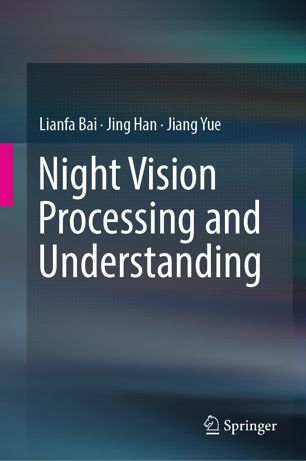

Most ebook files are in PDF format, so you can easily read them using various software such as Foxit Reader or directly on the Google Chrome browser.
Some ebook files are released by publishers in other formats such as .awz, .mobi, .epub, .fb2, etc. You may need to install specific software to read these formats on mobile/PC, such as Calibre.
Please read the tutorial at this link: https://ebookbell.com/faq
We offer FREE conversion to the popular formats you request; however, this may take some time. Therefore, right after payment, please email us, and we will try to provide the service as quickly as possible.
For some exceptional file formats or broken links (if any), please refrain from opening any disputes. Instead, email us first, and we will try to assist within a maximum of 6 hours.
EbookBell Team

4.7
106 reviewsThis book systematically analyses the latest insights into night vision imaging processing and perceptual understanding as well as related theories and methods. The algorithm model and hardware system provided can be used as the reference basis for the general design, algorithm design and hardware design of photoelectric systems. Focusing on the differences in the imaging environment, target characteristics, and imaging methods, this book discusses multi-spectral and video data, and investigates a variety of information mining and perceptual understanding algorithms. It also assesses different processing methods for multiple types of scenes and targets.Taking into account the needs of scientists and technicians engaged in night vision optoelectronic imaging detection research, the book incorporates the latest international technical methods. The content fully reflects the technical significance and dynamics of the new field of night vision. The eight chapters cover topics including multispectral imaging, Hadamard transform spectrometry; dimensionality reduction, data mining, data analysis, feature classification, feature learning; computer vision, image understanding, target recognition, object detection and colorization algorithms, which reflect the main areas of research in artificial intelligence in night vision.
The book enables readers to grasp the novelty and practicality of the field and to develop their ability to connect theory with real-world applications. It also provides the necessary foundation to allow them to conduct research in the field and adapt to new technological developments in the future.